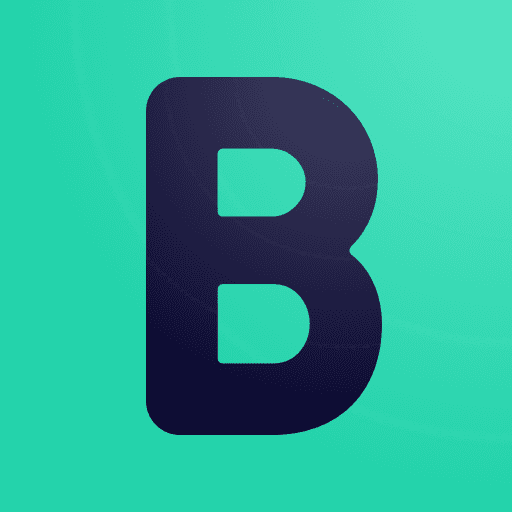


BEAT - Driver request app
BEAT - Driver request app
BEAT - Driver request app
App design, ride-hailing, data-driven
App design, ride-hailing, data-driven
App design, ride-hailing, data-driven
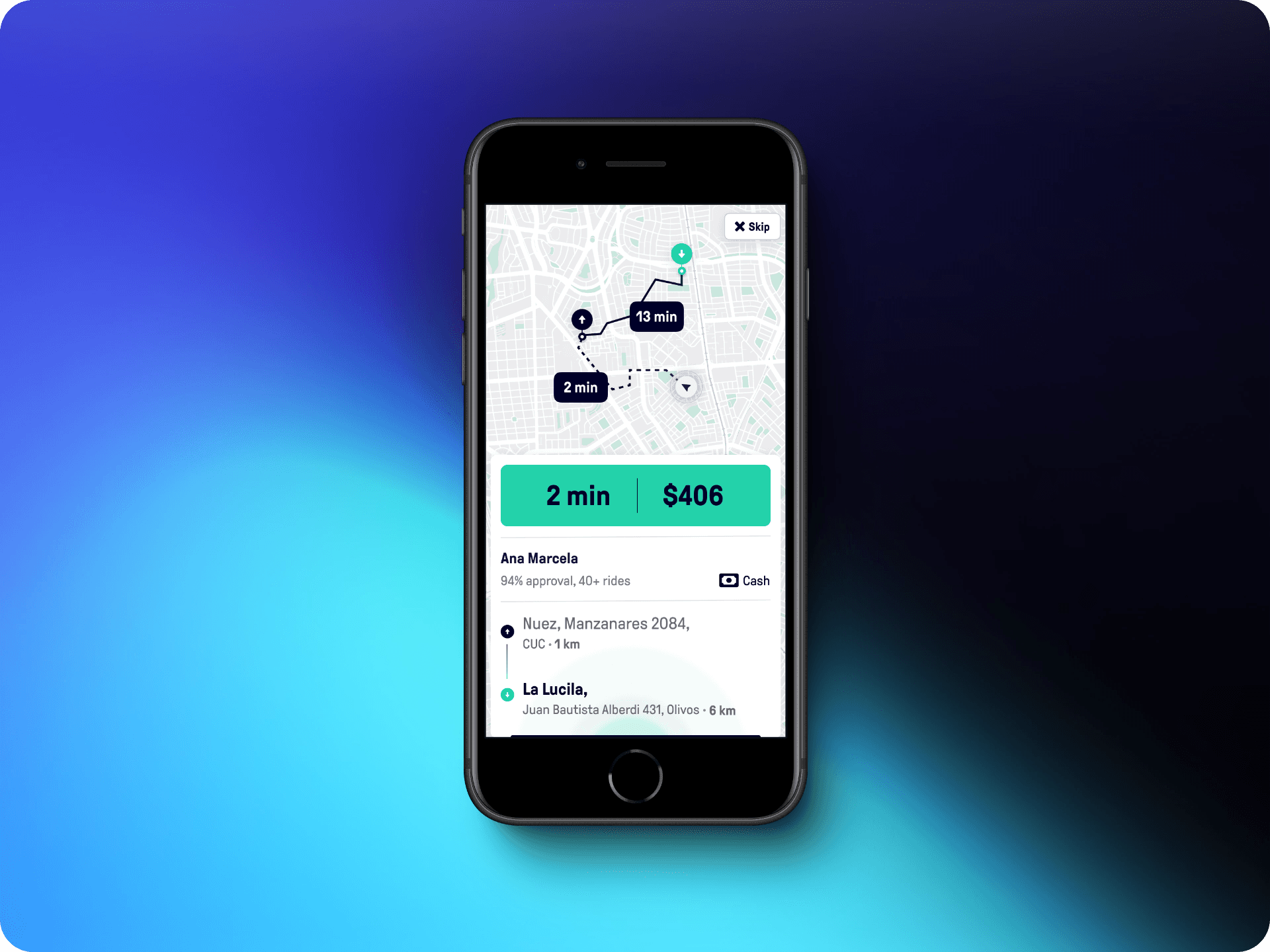


Overview
Overview
At Beat, a BMW-Daimler owned ride-hailing company, I spearheaded the redesign of the driver's request acceptance app through a comprehensive, data-driven approach combined with extensive user research across LATAM. Leading design sprints, I delved into the unique context of the region to ensure the design resonated with local drivers. My efforts focused on refining nuanced microinteractions, enhancing the overall user experience, and ultimately improving the app's efficiency and driver satisfaction.
At Beat, a BMW-Daimler owned ride-hailing company, I spearheaded the redesign of the driver's request acceptance app through a comprehensive, data-driven approach combined with extensive user research across LATAM. Leading design sprints, I delved into the unique context of the region to ensure the design resonated with local drivers. My efforts focused on refining nuanced microinteractions, enhancing the overall user experience, and ultimately improving the app's efficiency and driver satisfaction.
At Beat, a BMW-Daimler owned ride-hailing company, I spearheaded the redesign of the driver's request acceptance app through a comprehensive, data-driven approach combined with extensive user research across LATAM. Leading design sprints, I delved into the unique context of the region to ensure the design resonated with local drivers. My efforts focused on refining nuanced microinteractions, enhancing the overall user experience, and ultimately improving the app's efficiency and driver satisfaction.
Tools Used
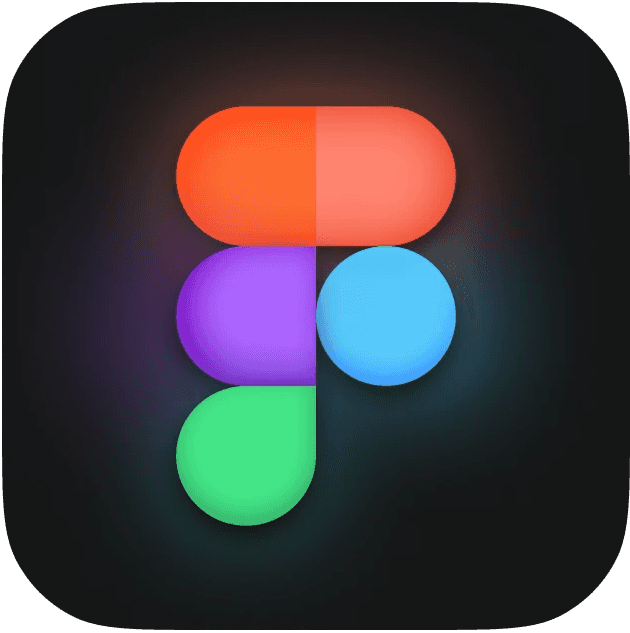
Figma
Design Tool

Notion
Documentation

Miro
Design workshops/sprints
Tools Used

Figma
Design Tool

Notion
Documentation

Miro
Design workshops/sprints
Tools Used

Figma
Design Tool

Notion
Documentation

Miro
Design workshops/sprints
Tools Used

Figma
Design Tool

Notion
Documentation

Miro
Design workshops/sprints
Created
Created
2021
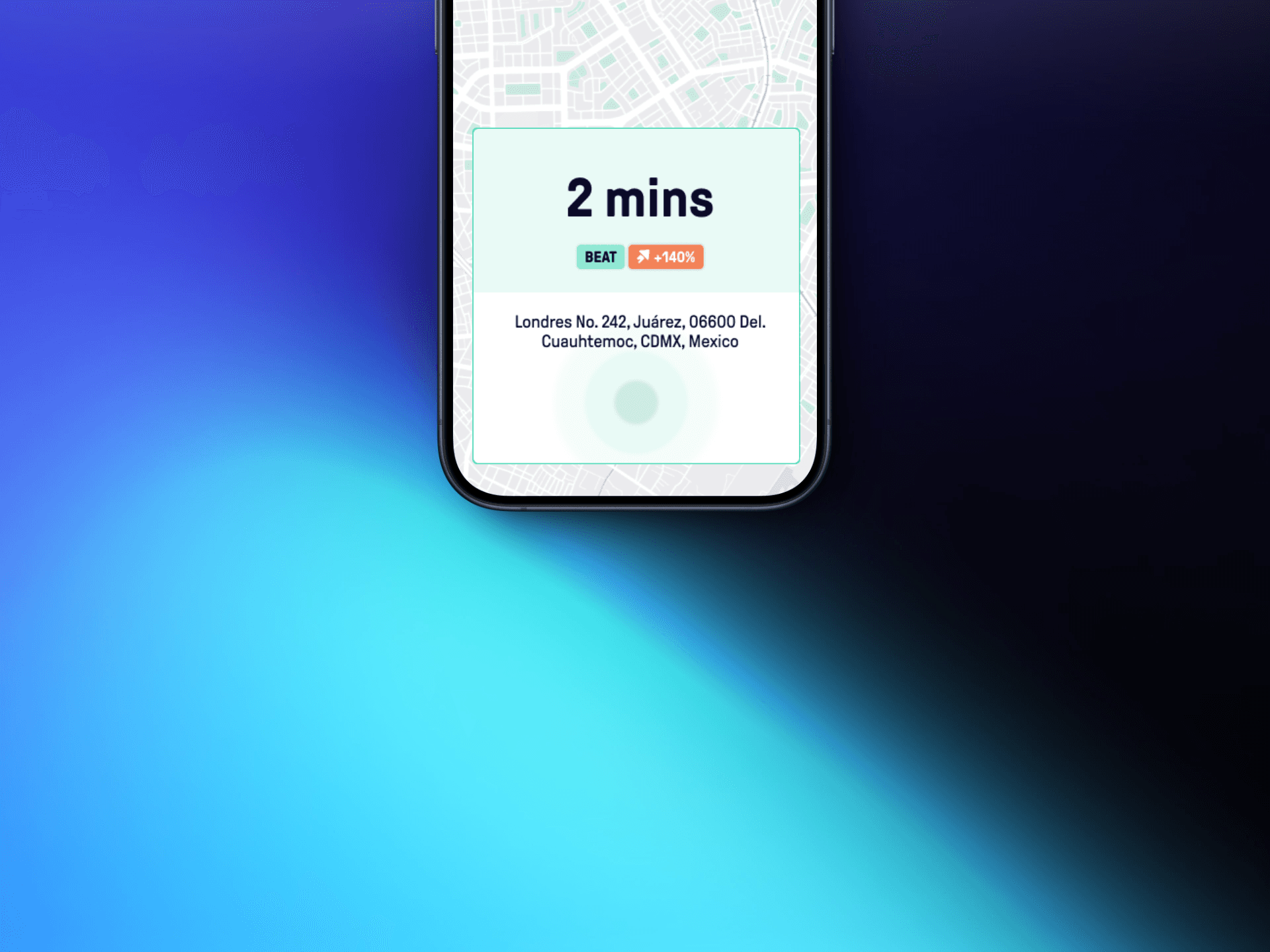



Process
Process
This quote encapsulates the problem most drivers faced
“My phone doesn’t stop ringing but I don’t want to tap on ‘Reject’ because it will do more harm to my acceptance rate than ignoring the request”
Edgar Jr., Bogota, Colombia
Snippets from our on-field research in LATAM
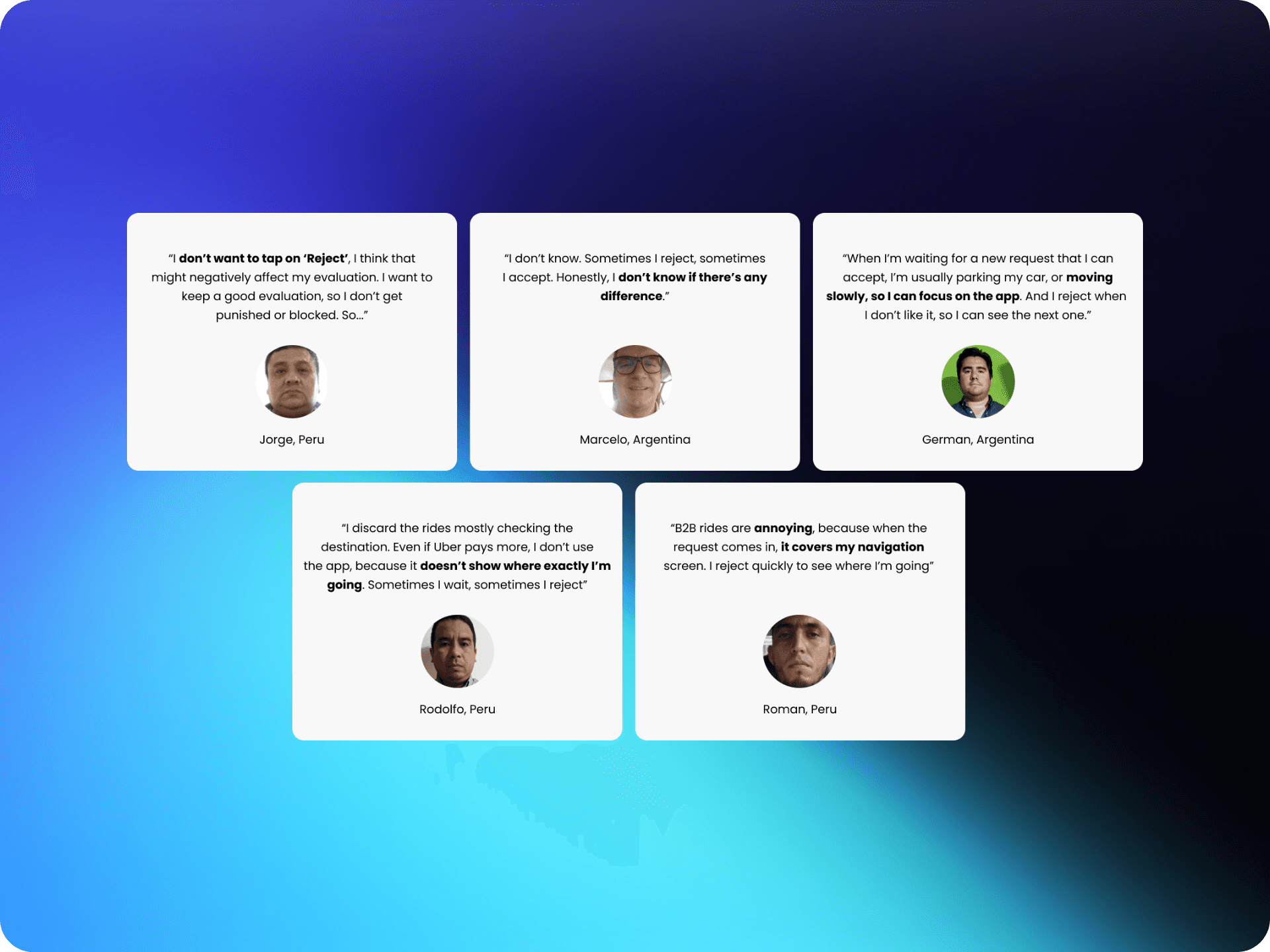
This quote encapsulates the problem most drivers faced
“My phone doesn’t stop ringing but I don’t want to tap on ‘Reject’ because it will do more harm to my acceptance rate than ignoring the request”
Edgar Jr., Bogota, Colombia
Snippets from our on-field research in LATAM

This quote encapsulates the problem most drivers faced
“My phone doesn’t stop ringing but I don’t want to tap on ‘Reject’ because it will do more harm to my acceptance rate than ignoring the request”
Edgar Jr., Bogota, Colombia
Snippets from our on-field research in LATAM

This quote encapsulates the problem most drivers faced
“My phone doesn’t stop ringing but I don’t want to tap on ‘Reject’ because it will do more harm to my acceptance rate than ignoring the request”
Edgar Jr., Bogota, Colombia
Snippets from our on-field research in LATAM

Daily life of a cab driver
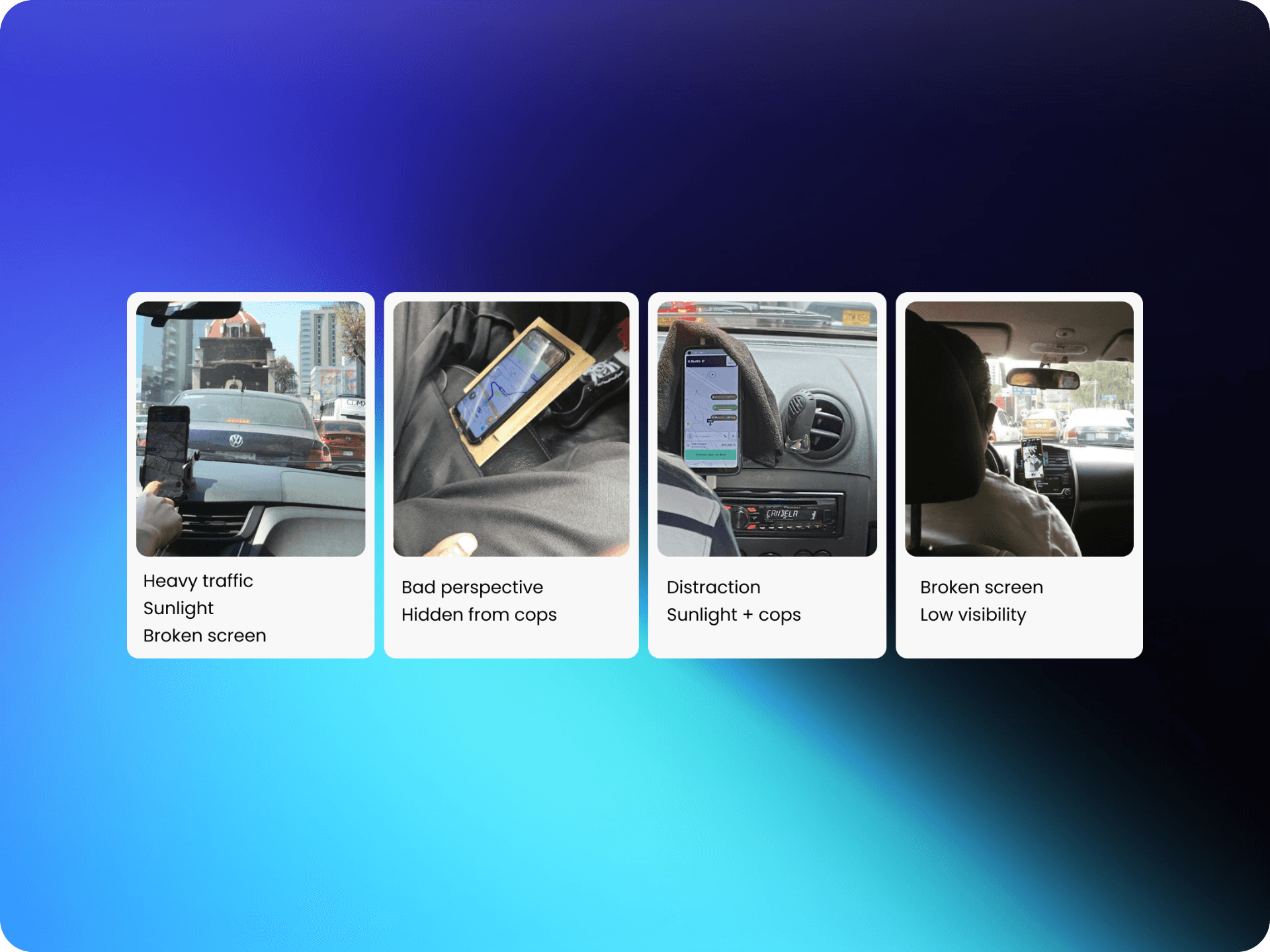
Daily life of a cab driver

Daily life of a cab driver

Data that supported research
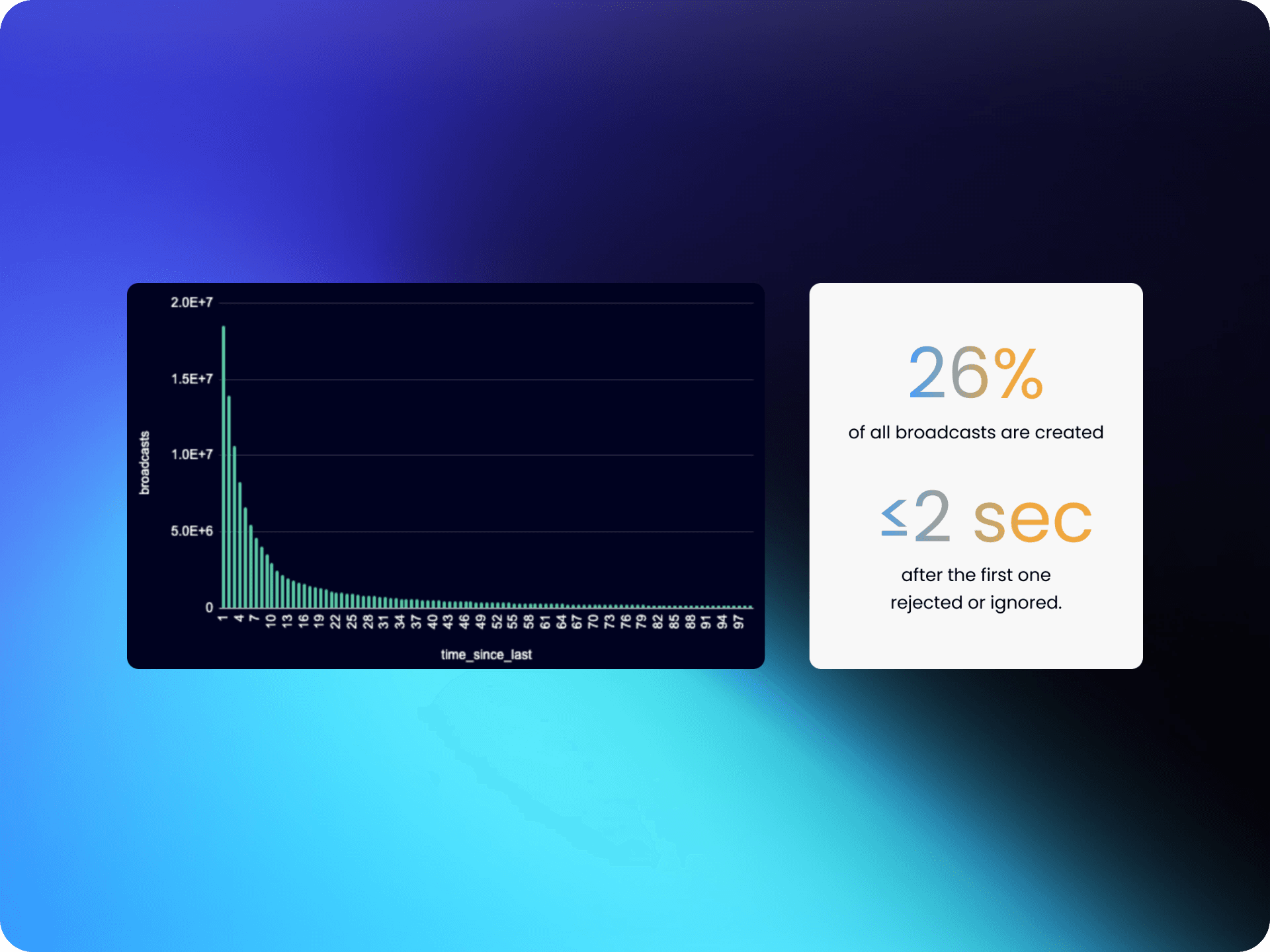
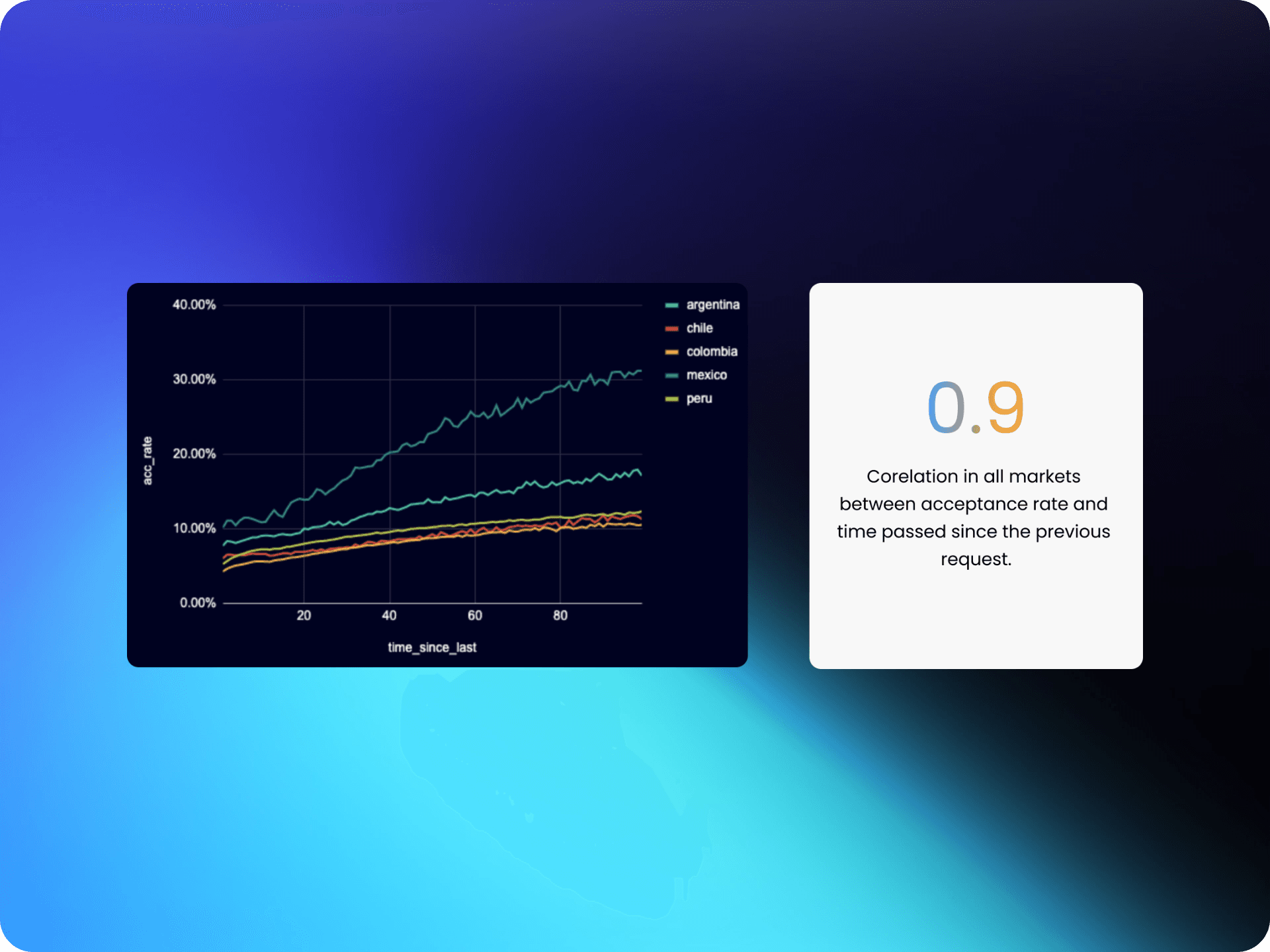
How might we smartly time requests for drivers who are annoyed by repeated notifications so that we improve acceptance rates while maintaining a perception of demand?
Iteration 1
Adding a 5sec buffer between each request although we prototyped multiple design solutions, a simple backend change was enough to validate this idea
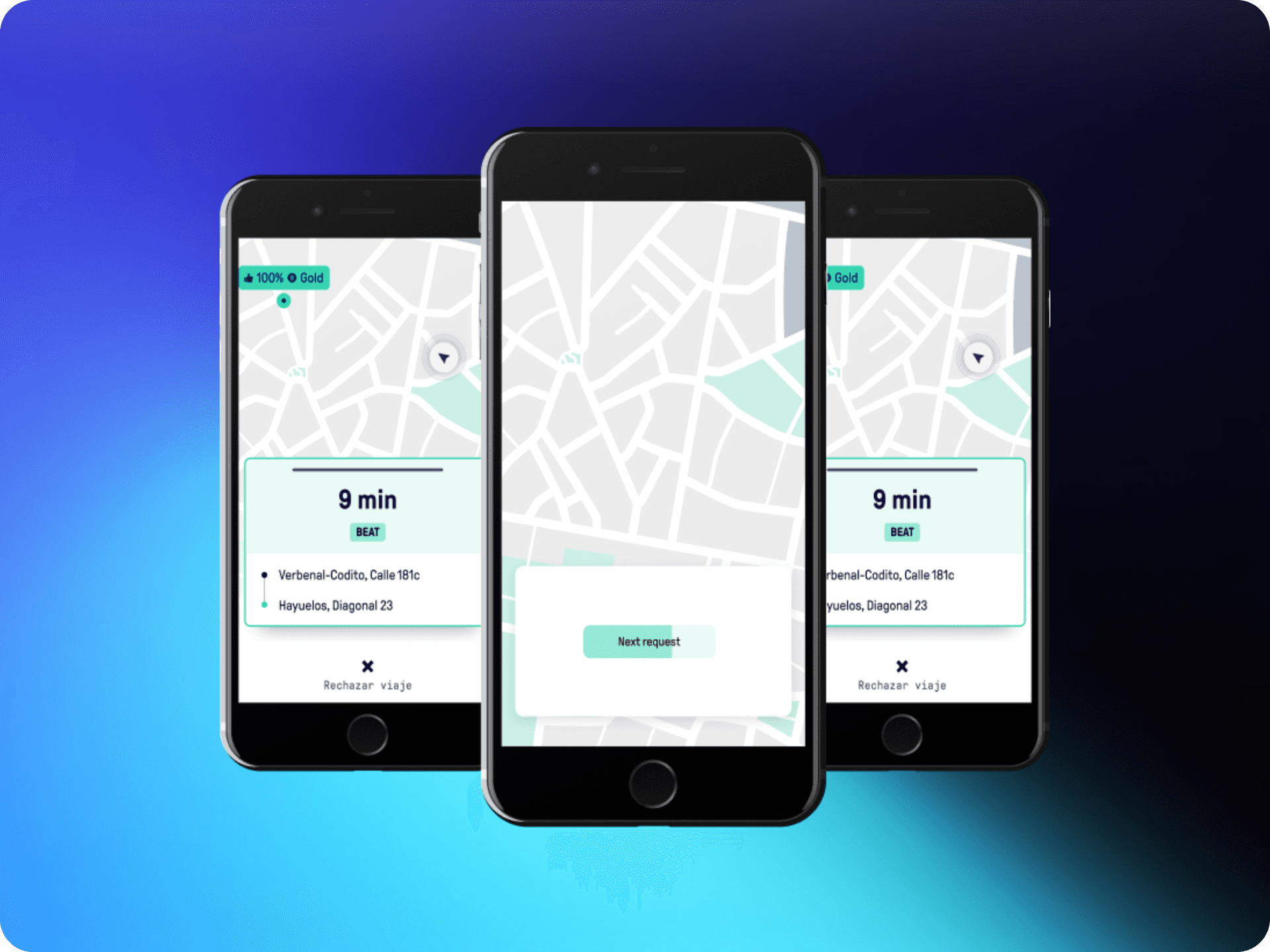
Results of a 5sec buffer in Mexico:
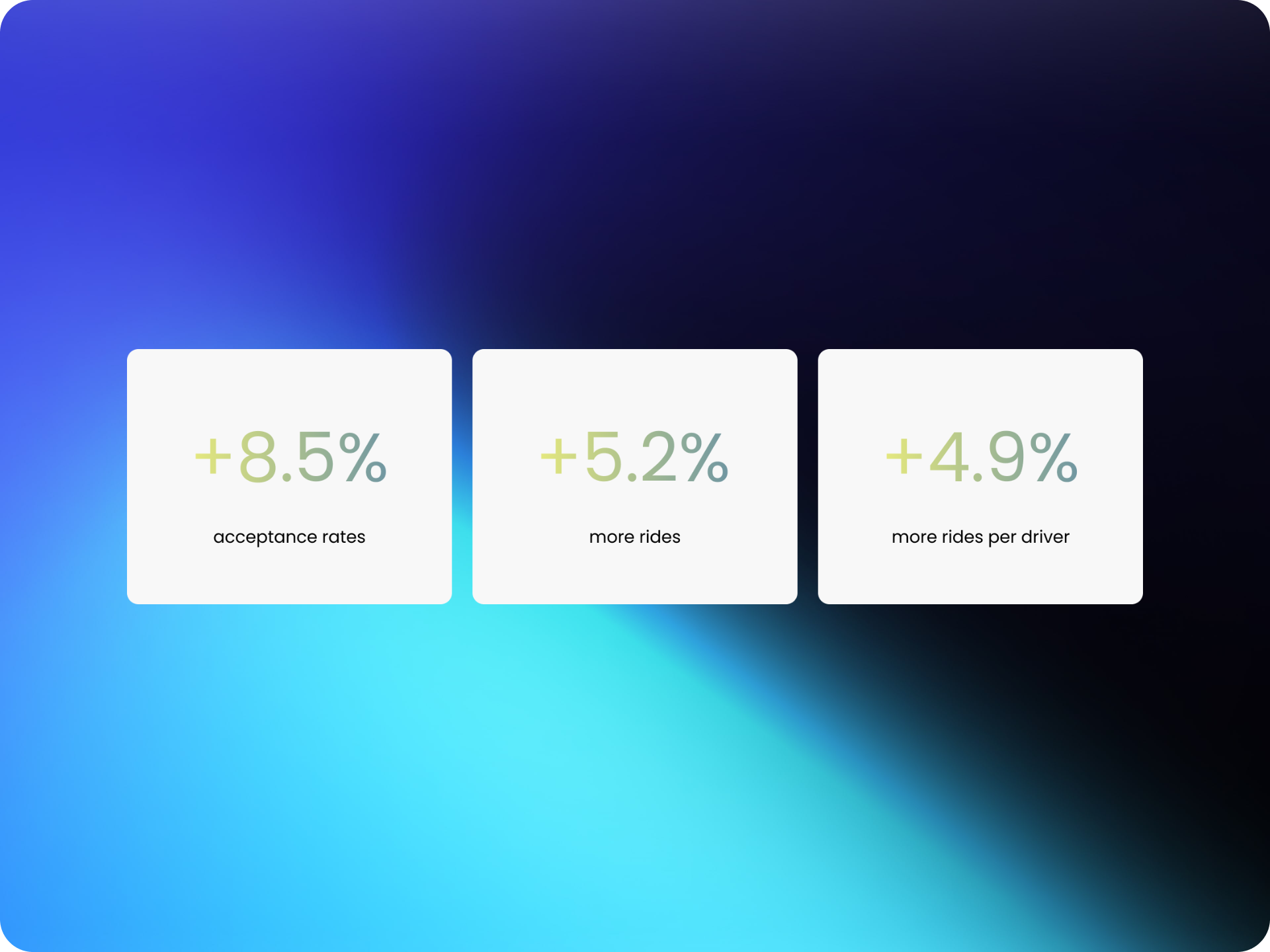
We solved the issue of repeated notifications by adding a buffer, but the unclarity of rejecting a ride still remained.
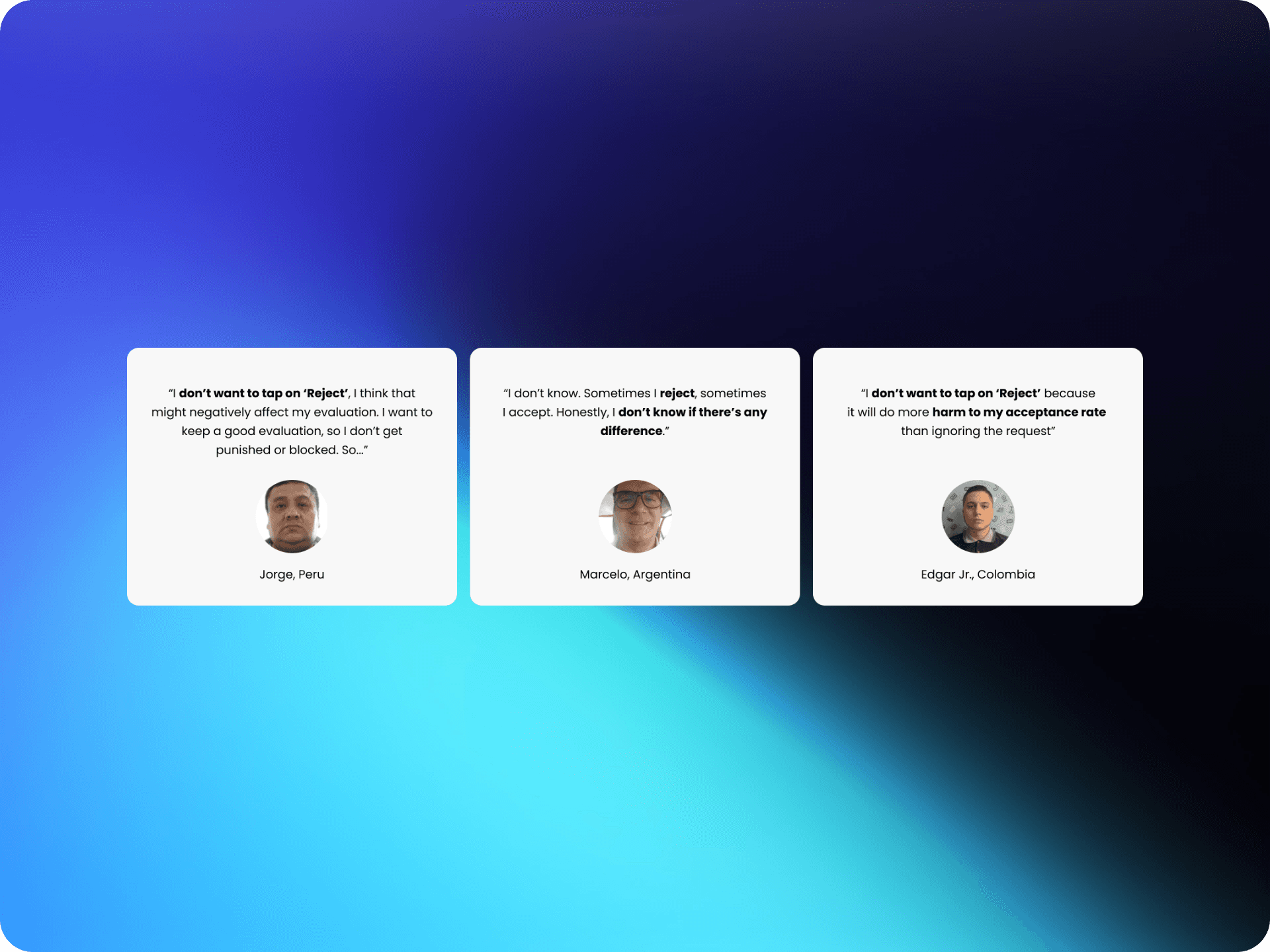
Iteration 2
Introducing the concept of 'skip request' changes the perception and negative connotation of reject, drivers are micro-entreprenuers - skip gives them the power to decide, skipping requests improves machine learning models
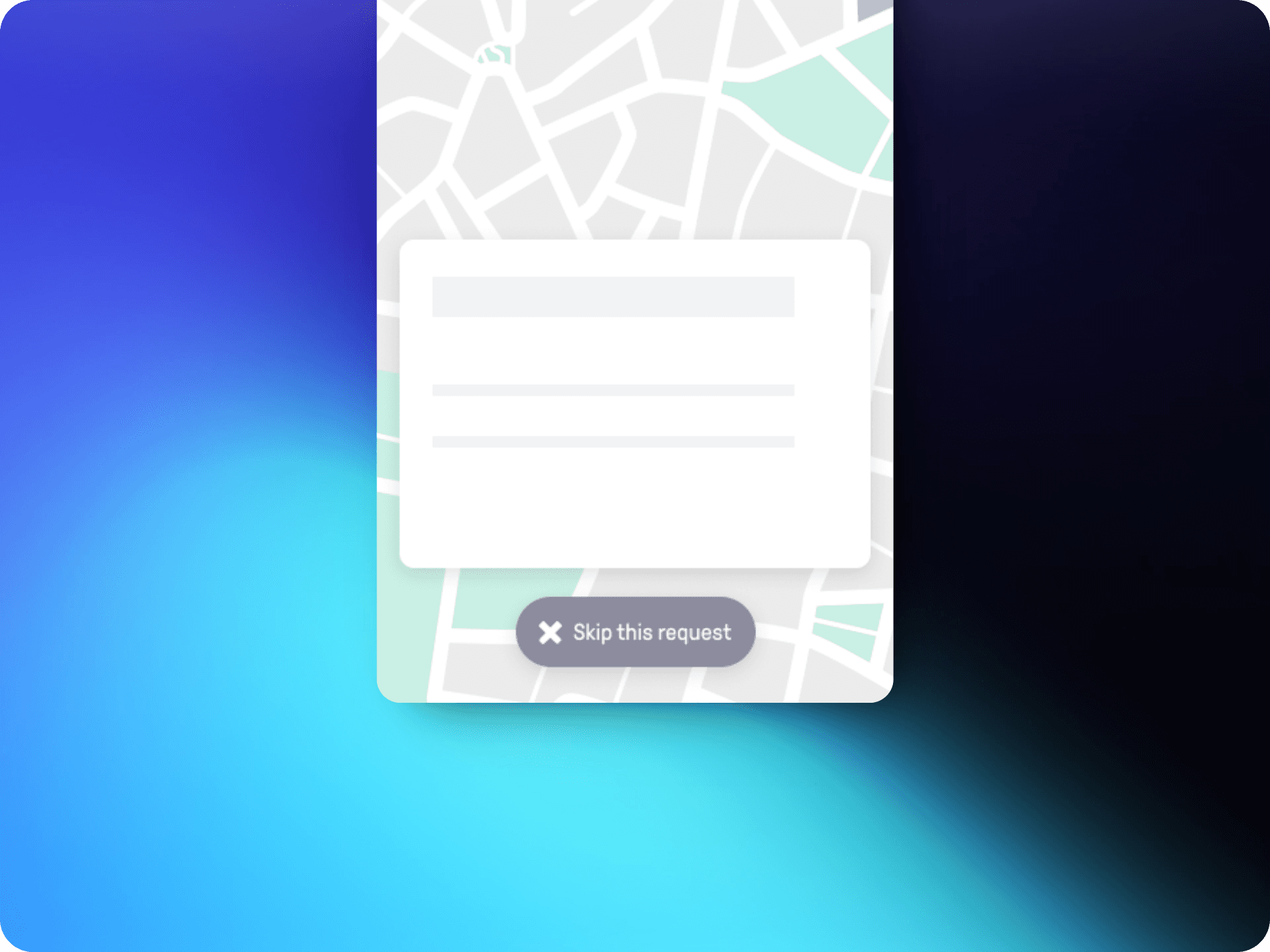
The previous map lacked enough information for a driver to make an informed decision. We wanted to make the map as informative as possible without compromising readability while driving.
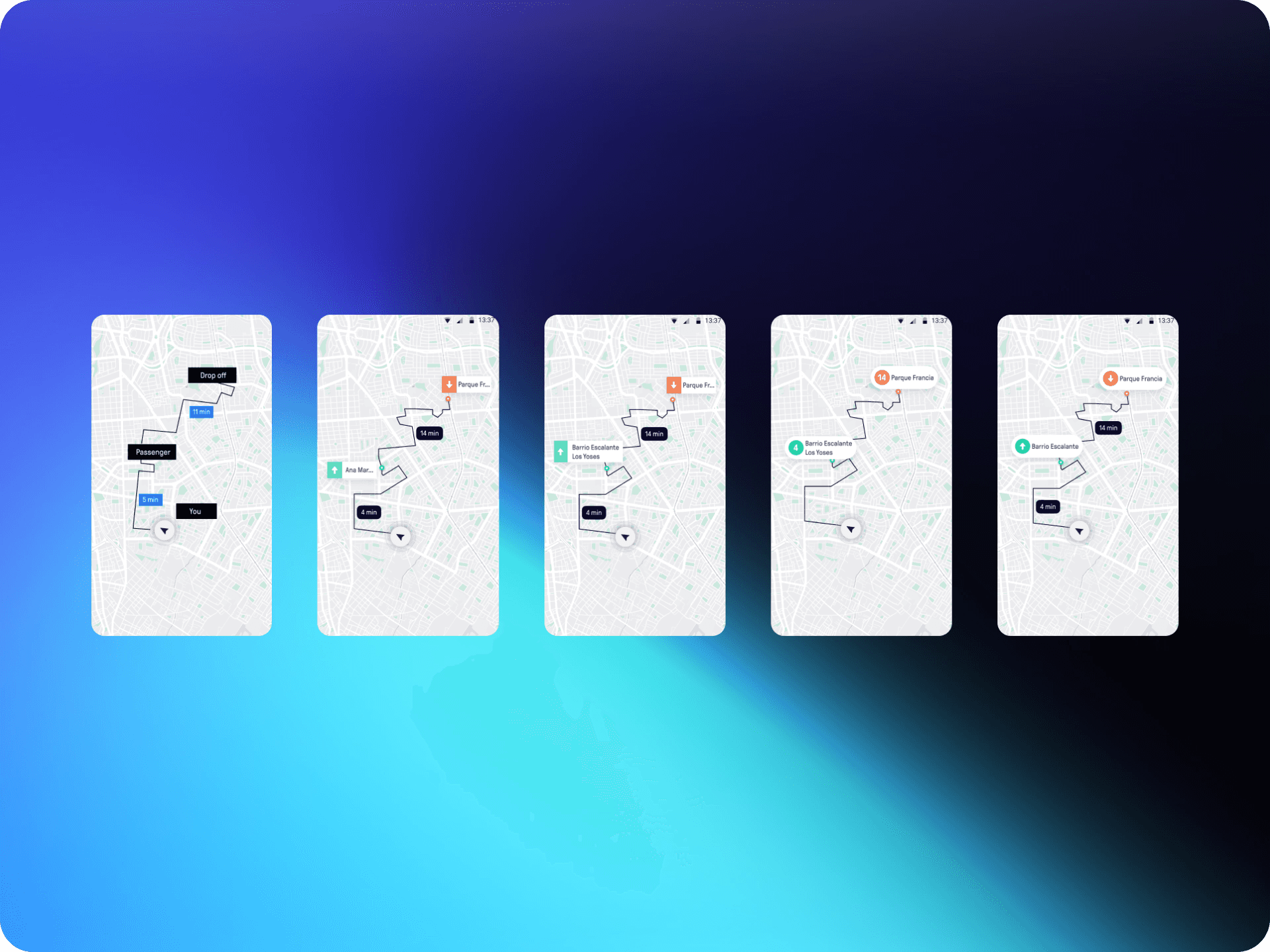
The finalised version had: visual micro-interactions, clear indication of pick-up & drop-off points, ETA that allows quick calculations, no text on the map for increased clarity.
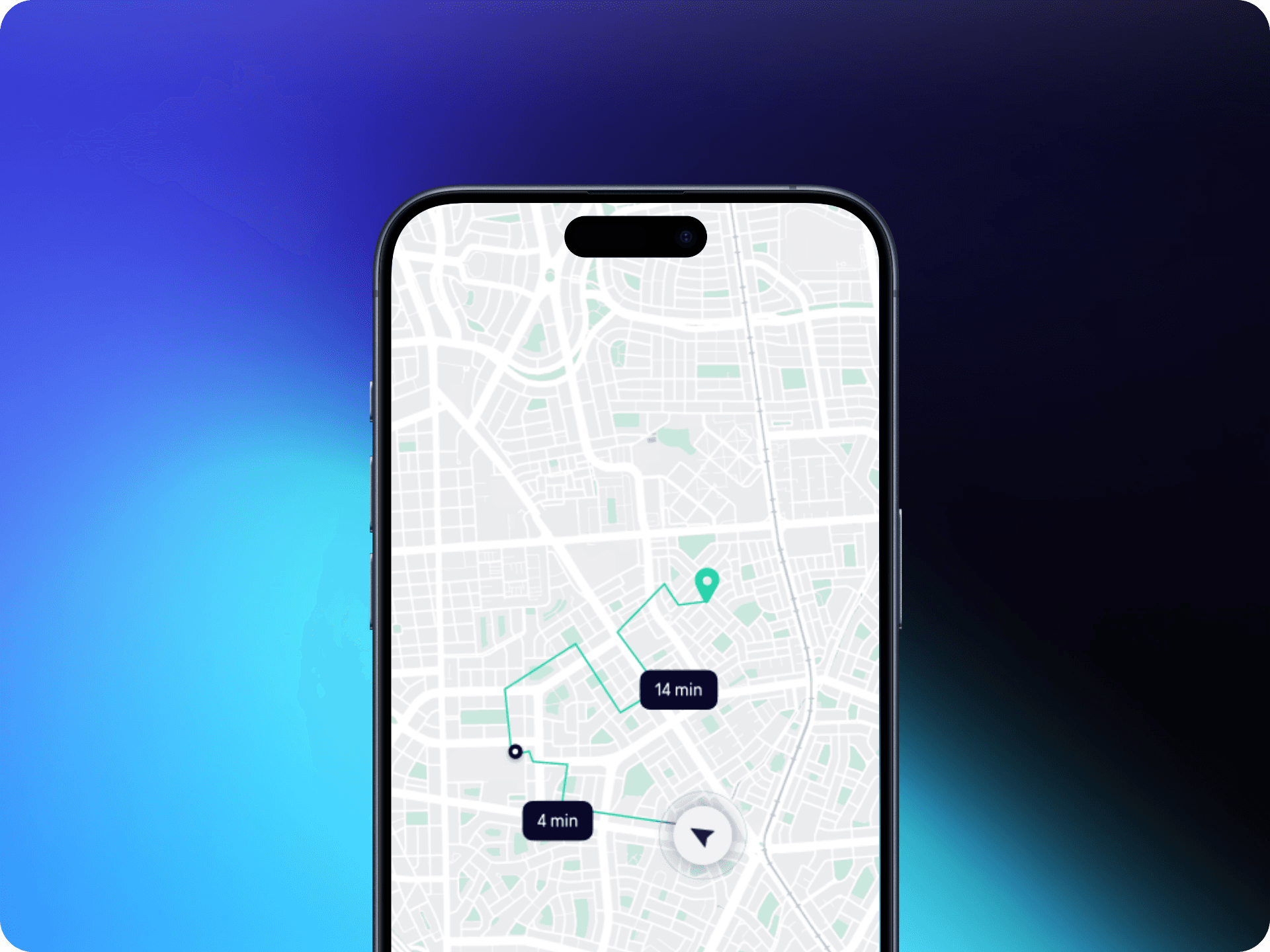
Increasing affordance to accept
By doing away with an uninspiring request screen, the new concepts explored the idea of designing for delight.
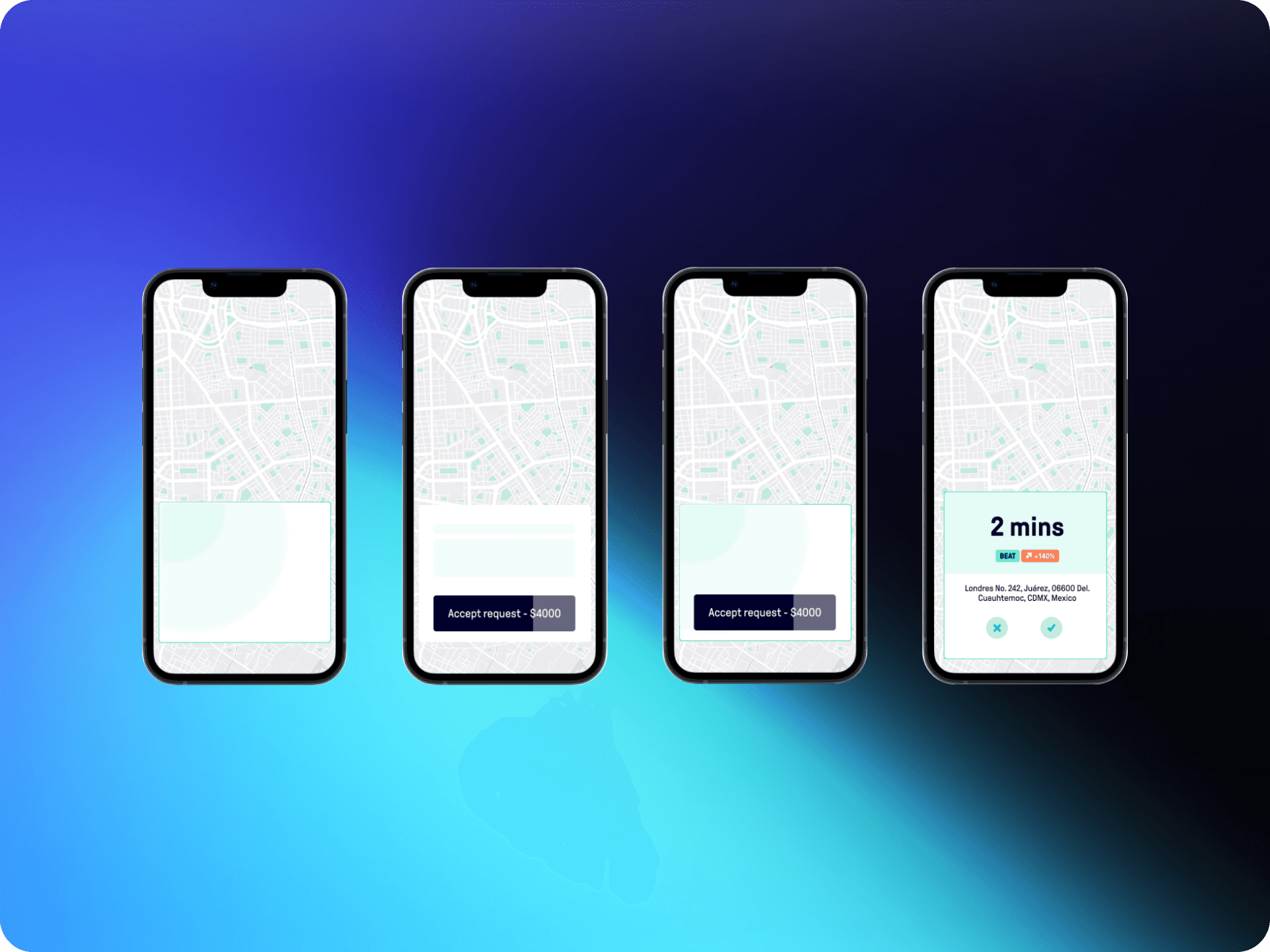
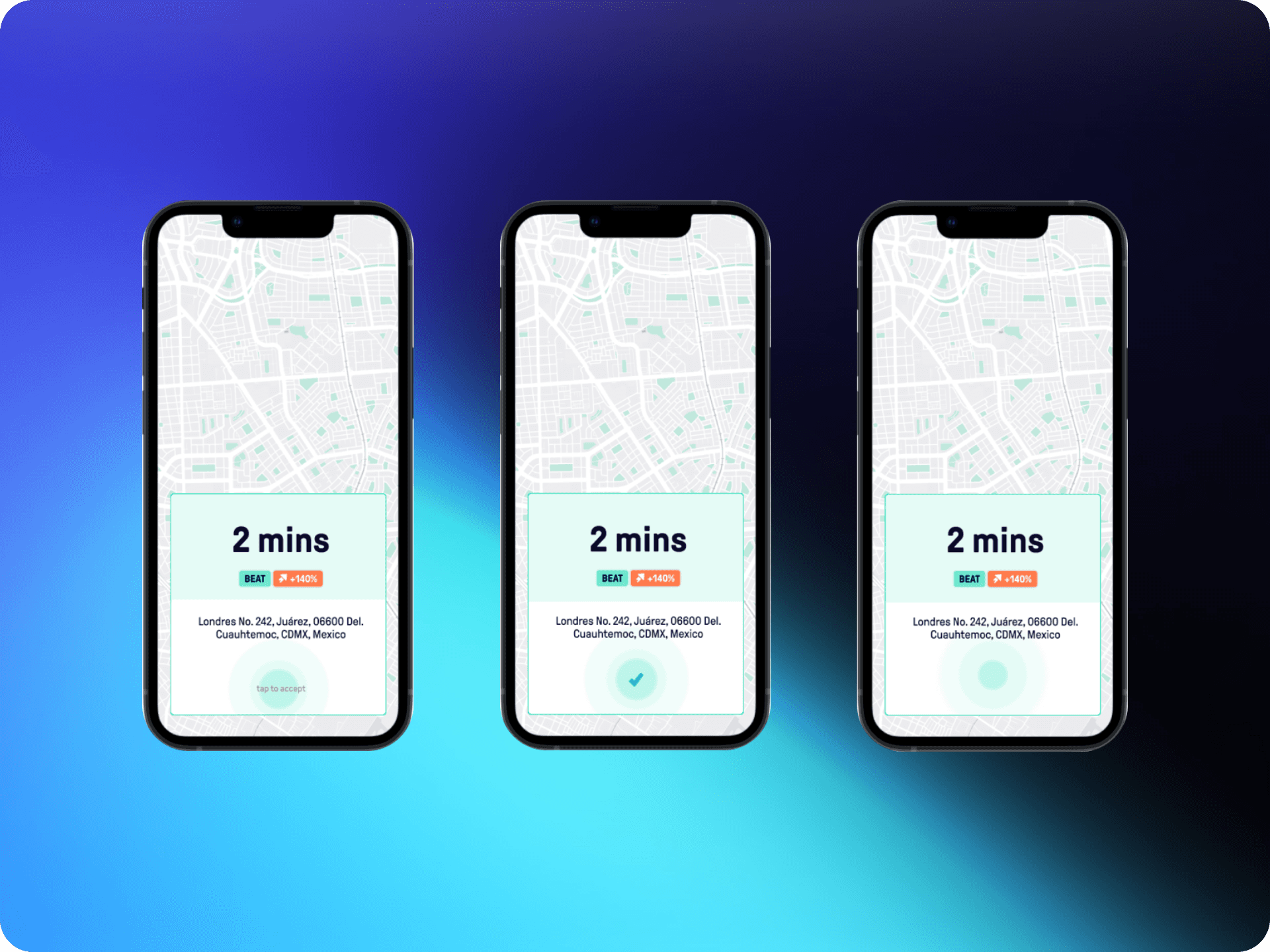
Final Version
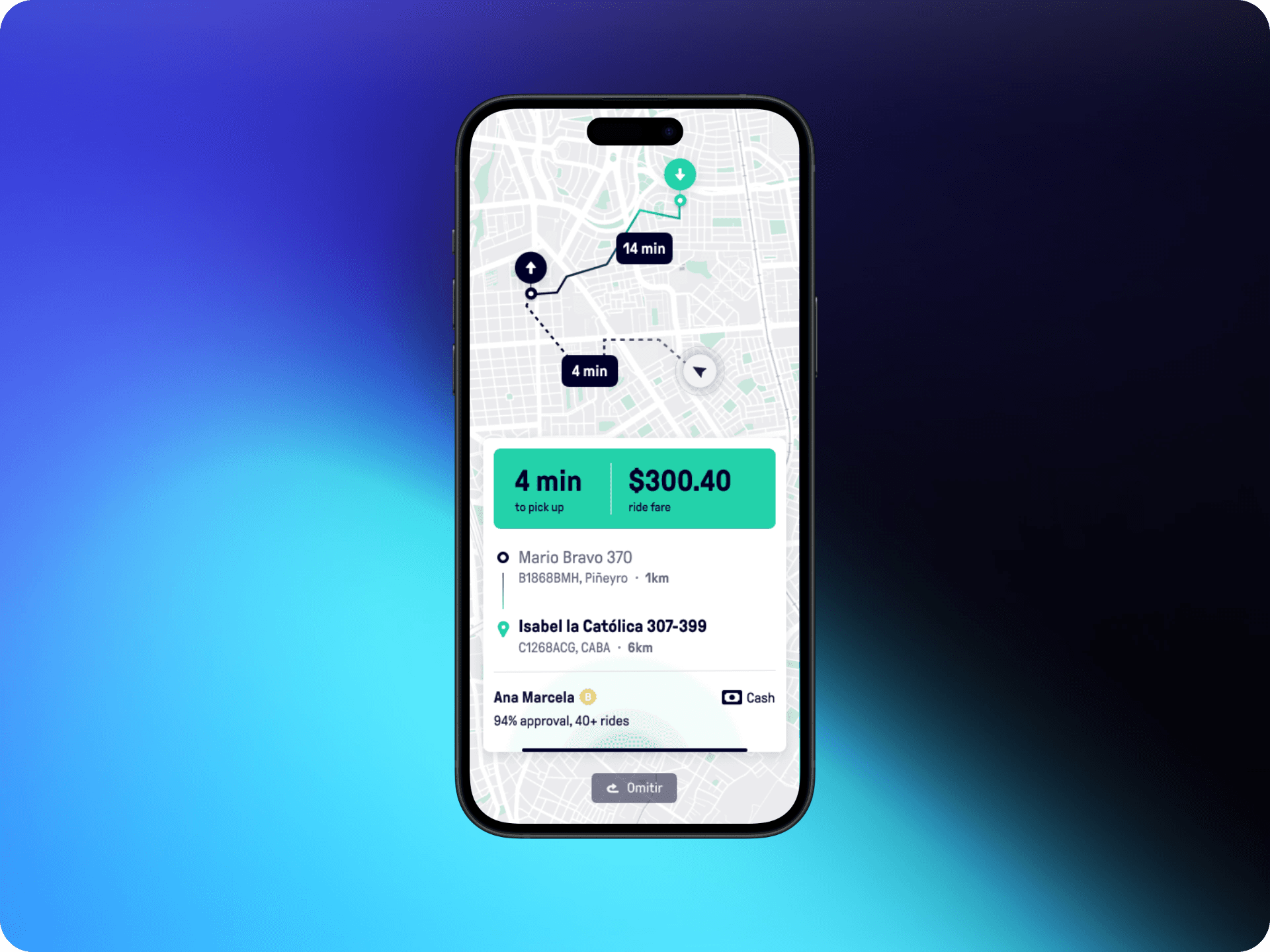
The final solutions are a result of multiple design workshops and ideation sessions facilitated by me.
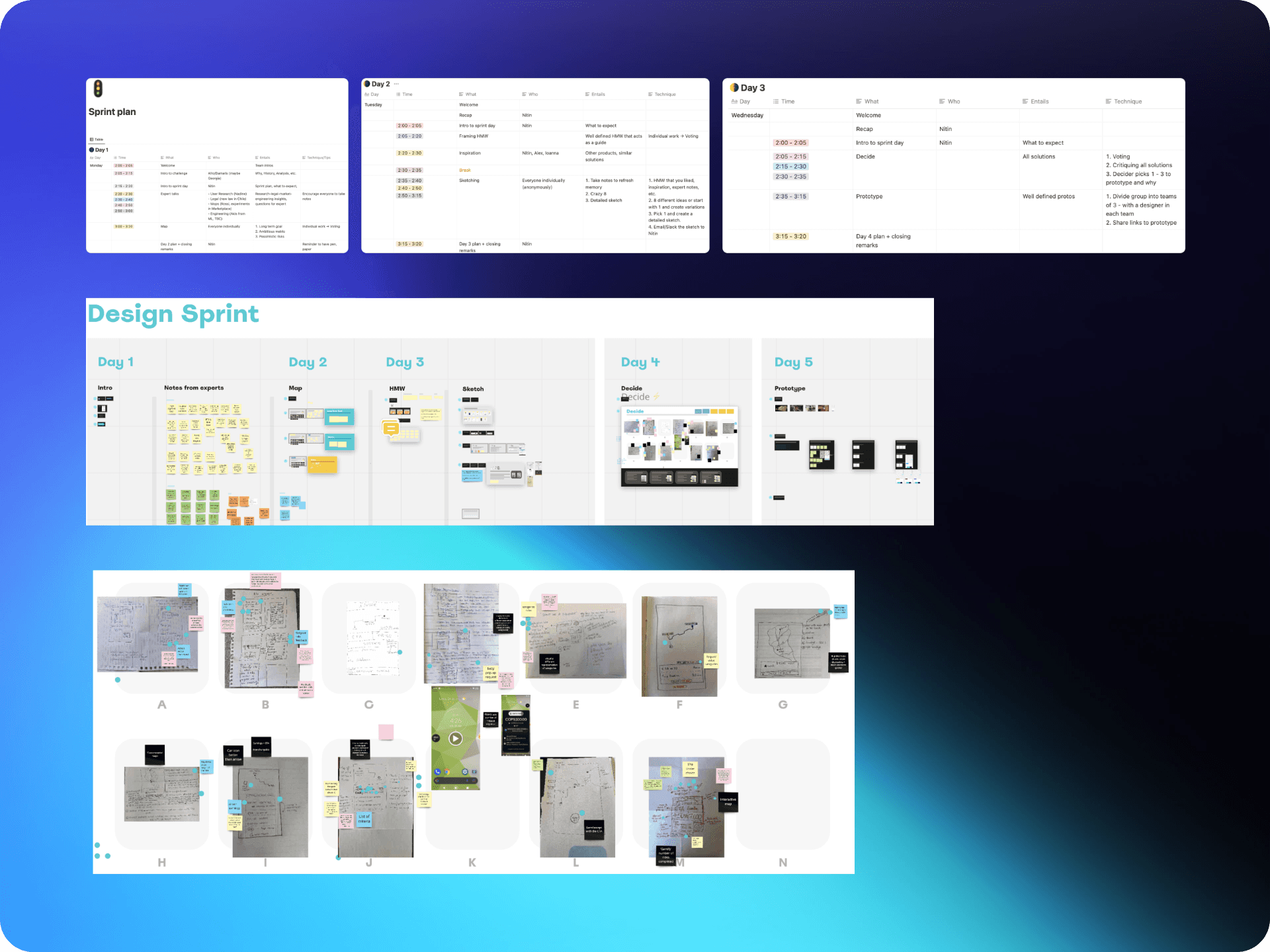
Data that supported research


How might we smartly time requests for drivers who are annoyed by repeated notifications so that we improve acceptance rates while maintaining a perception of demand?
Iteration 1
Adding a 5sec buffer between each request although we prototyped multiple design solutions, a simple backend change was enough to validate this idea

Results of a 5sec buffer in Mexico:

We solved the issue of repeated notifications by adding a buffer, but the unclarity of rejecting a ride still remained.

Iteration 2
Introducing the concept of 'skip request' changes the perception and negative connotation of reject, drivers are micro-entreprenuers - skip gives them the power to decide, skipping requests improves machine learning models

The previous map lacked enough information for a driver to make an informed decision. We wanted to make the map as informative as possible without compromising readability while driving.

The finalised version had: visual micro-interactions, clear indication of pick-up & drop-off points, ETA that allows quick calculations, no text on the map for increased clarity.

Increasing affordance to accept
By doing away with an uninspiring request screen, the new concepts explored the idea of designing for delight.


Final Version

The final solutions are a result of multiple design workshops and ideation sessions facilitated by me.

Data that supported research


How might we smartly time requests for drivers who are annoyed by repeated notifications so that we improve acceptance rates while maintaining a perception of demand?
Iteration 1
Adding a 5sec buffer between each request although we prototyped multiple design solutions, a simple backend change was enough to validate this idea

Results of a 5sec buffer in Mexico:

We solved the issue of repeated notifications by adding a buffer, but the unclarity of rejecting a ride still remained.

Iteration 2
Introducing the concept of 'skip request' changes the perception and negative connotation of reject, drivers are micro-entreprenuers - skip gives them the power to decide, skipping requests improves machine learning models

The previous map lacked enough information for a driver to make an informed decision. We wanted to make the map as informative as possible without compromising readability while driving.

The finalised version had: visual micro-interactions, clear indication of pick-up & drop-off points, ETA that allows quick calculations, no text on the map for increased clarity.

Increasing affordance to accept
By doing away with an uninspiring request screen, the new concepts explored the idea of designing for delight.


Final Version

The final solutions are a result of multiple design workshops and ideation sessions facilitated by me.
